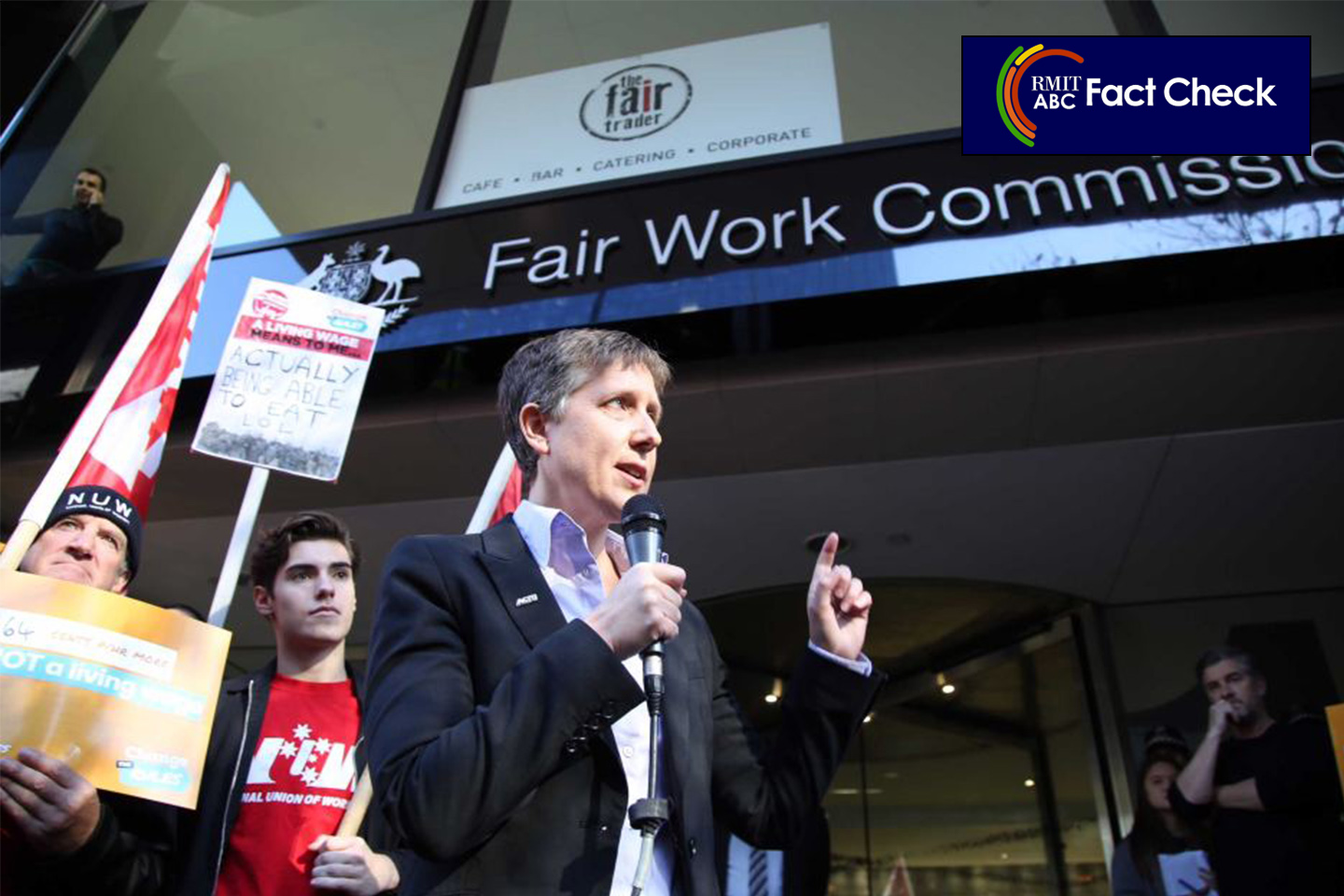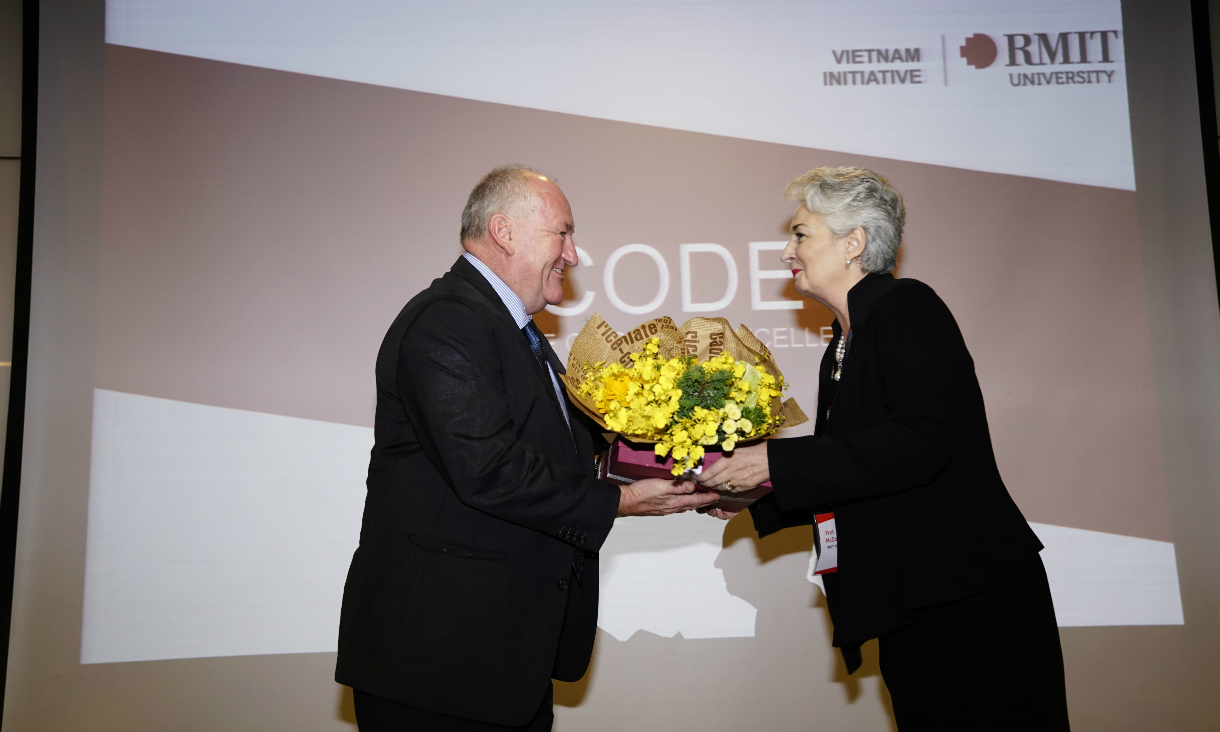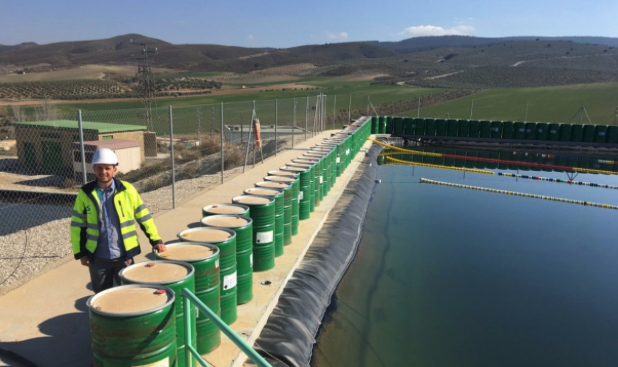The claim
The union movement has enlisted the opinion of an unlikely ally — the Catholic Church — in its campaign to make wage theft a crime.
With a warning that should worry dodgy bosses, Australian Council of Trade Unions Secretary Sally McManus has told her Twitter followers that the spiritual stakes are high for employers who rip-off their workers: "The Pope is making unionsaustralia look soft on wage theft. He's declared it a mortal sin so punishment is eternal".
Is that really what the Pope said? And do mortal sins attract eternal punishment?
RMIT ABC Fact Check investigates
The verdict
Ms McManus's claim is a faithful account.
Although Pope Francis didn't specifically say "wage theft", he did refer to examples that fall within the term's broad meaning.
Strictly speaking, there is no agreed definition of wage theft.
However, Fact Check takes it to mean deliberate non-compliance with legal obligations relating to employee entitlements — whether that's underpaying wages or withholding leave payments and superannuation.
And the Pope said those "who don't pay" are committing a mortal sin.
Indeed, Catholic doctrine makes clear that his admonition applies to intentional acts of greed or stinginess by employers. And the Catholic Bible shows Jesus took a similar view.
So what's the punishment for a mortal sin?
Without a good excuse — for example, ignorance or a pathological disorder — then the Catholic Church says sinners should brace for "eternal hell".
That's unless, of course, they repent and promise to change their ways.
Quoting the Pope
Ms McManus was referring to a mass celebrated by the Pope on May 24, 2018 at the Casa Santa Marta in Vatican City.
According to her, Pope Francis took aim at "wage theft" — although a report published on the Vatican's official news portal shows those weren't his exact words:
"Even here in Italy people are left without a job in order to preserve capital investments. This goes against the second commandment, so: 'Woe to you', Jesus warns. Woe to you who exploit others and their work by evading taxes, not contributing to their pension funds, and not giving them paid vacation. Woe to you!... If you don't pay, your injustice is a mortal sin."
The Holy See press office is yet to publish the full transcript in English.
Is it wage theft?
Two legal experts told Fact Check there was no agreed legal definition for wage theft.
But, they said, broadly speaking it refers to employer non-payment of, or non-compliance with, employees' legal monetary entitlements.
In Australia, employers must pay into their employees' superannuation accounts, or what the Pope called "pension funds".
They must also provide employees with paid leave or, in the case of casual staff, pay them a higher hourly rate to compensate for their lack of leave entitlements.
Dr Stephen Clibborn, a law lecturer with Sydney University's Business School, told Fact Check that wage theft included a range of illegal activities.
"So that could be not paying the award or national minimum wage, their contracted wages, overtime, penalty rates; not paying for all the hours worked; not paying superannuation; unauthorised deductions, misclassification of independent contractors."
Professor Anthony Forsyth, an industrial relations law expert at RMIT University, agreed that most of what the Pope referred to fell within the scope of wage theft.
"I understand wage theft to include any evasion of payment-related legal obligations to employees, thus picking up non-contributions to pension/superannuation funds and not according employees their leave entitlements."
But it would not extend to "evading taxes", he said, because taxes were owed to the government.
Read the full story
Principal Researcher: David Campbell





